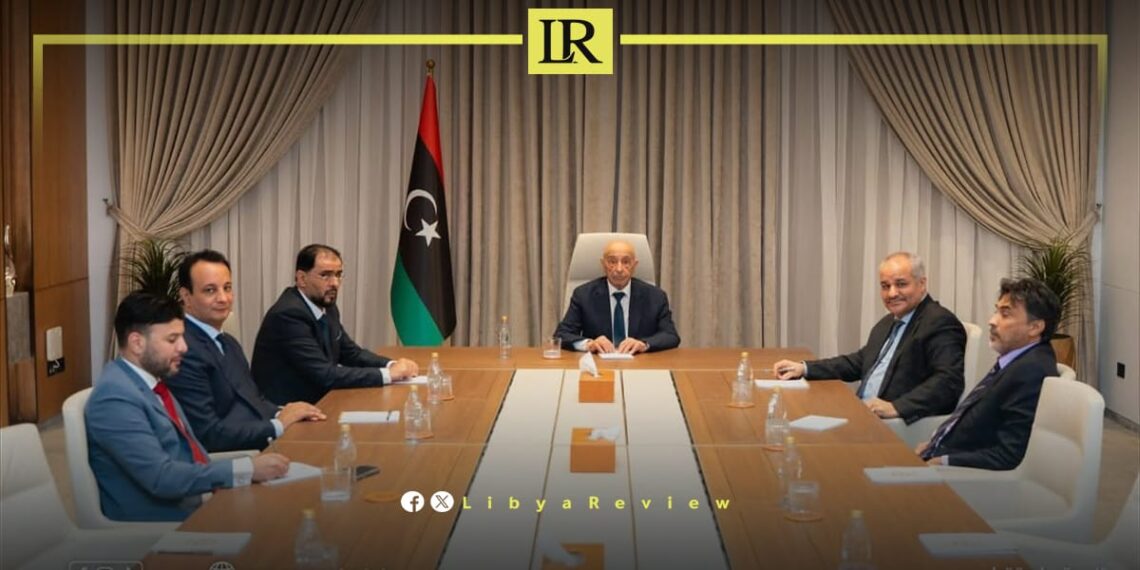Libya’s Central Bank Governor, Nagy Issa, and Parliament Speaker Ageela Saleh discussed five proposed economic reforms in Benghazi, agreeing on three financial measures to address service-related challenges.
The meeting was attended by House-appointed Prime Minister Osama Hamad, Director of the Reconstruction Fund Belgassem Haftar, and Deputy Governor of the Central Bank Marai Al-Barassi. The talks focused on economic and financial issues, with particular attention to the country’s power crisis, according to a statement from the Reconstruction Fund.
The proposed reforms from the government included boosting oil production and cancelling the oil-for-fuel swap system. Other measures involved introducing transparent mechanisms to provide fuel for power stations, supporting small and medium-sized enterprises, unifying audit and oversight bodies, and activating the Customs Tariff Council.
Issa highlighted the Central Bank’s efforts to stabilise the exchange rate and regulate foreign currency sales. He also presented the new payroll system “Instant Salary”, designed to enhance transparency and accuracy in salary payments.
The statement said the meeting resulted in agreements to support maintenance of power plants, ensure continuity of essential services, and tighten controls on letters of credit to curb goods smuggling. The measures aim to protect the Libyan dinar and strengthen financial stability.
Earlier, the media office of the Parliament Speaker reported that Issa pledged to resolve the liquidity shortage by October. He said the bank was working to expand electronic payment systems to modernise transactions and reduce dependence on cash.
The Benghazi meeting underscored growing coordination between the Central Bank and the Parliament as Libya seeks to address chronic service problems, energy shortages, and financial mismanagement that have fuelled public frustration.


